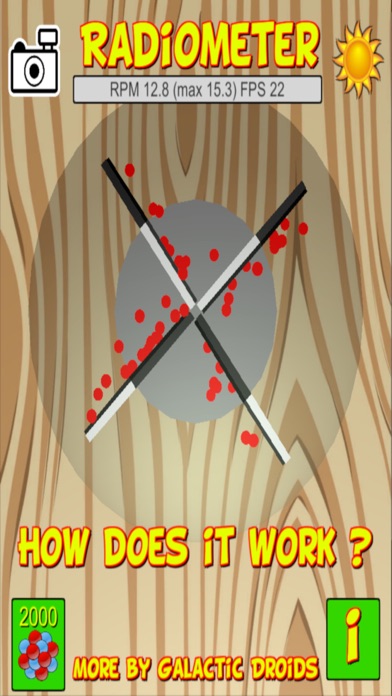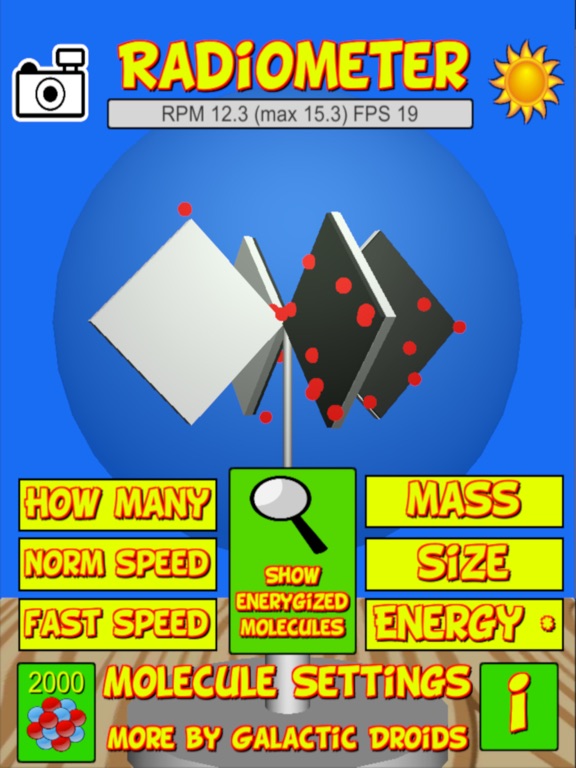Radiometer
- Publisher: Galatic Droids
- Genre: Education
- Released: 9 May, 2019
- Size: 65.1 MB
- Price: FREE!
 Click here to request a review of this app
Click here to request a review of this app
- App Store Info
Description
RadiometerThis app simulates a Crookes Radiometer, also called a Solar Roentgenometer or light-mill.
Basically if you put a radiometer in the sunshine then the vanes will spins, but why ?
Download our radiometer simulator now to see the physics in action.
Initially it was though that the momentum of absorbed light on the black surfaces made it spin.
However this cannot be the case since the radiometer actually spins in the wrong direction.
Now we understand that it is the heat transfer from the black vanes that drives the rotation.
With our app you can view a simulation of the moving particles to understand what is happening. Use the magnifier icon to view energised molecules. These move faster and hit the black vanes harder, and so drives the rotation.
You can tweak the simulation settings to see how particle speed, mass, etc effects the speed of the solar sails. How fast can you make them spin, we estimate 100+ rpm is possible.
The following items can be configures :-
Number of Molecules : A radiometer works at a partial vacuum, too little or too much air and it does not work. Our devices are not powerful to track the actual number of molecules (say one hundred quintillion), so this is only a simulation.
Speed of Molecules: Enter the speed of the molecules at normal room temperature.
Excited Molecule Speed: Molecules close to the black vanes get hotter, giving them more energy and making them move faster. Enter the excited molecule speed.
Molecule mass: Molecules have a tiny amount of mass, we cannot simulate the trillions of molecules involved but do allow you to change the mass as a fudge factor.
Molecule Size: More for visualisation then anything else, click the magnifying glass to see the particles in action.
Energy Multiplier: Hotter energised molecules have more energy, we can multiply this effect to exaggerate the effect and make the radiometer spin faster.
Download our radiometer simulator now to see the physics in action.
























